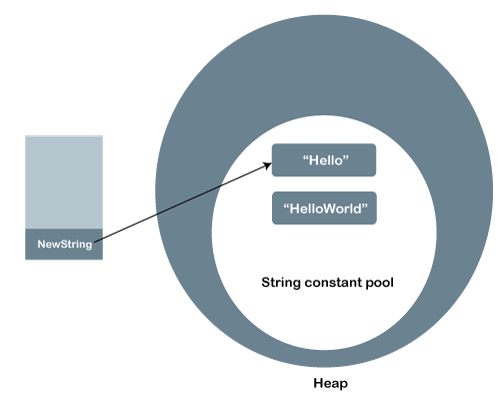Why Are Strings Immutable in Java? Detailed Analysis for Developers
Why Are Strings Immutable in Java? Detailed Analysis for Developers
Blog Article
Unalterable Strings: A Secret Component in Ensuring Information Consistency and Dependability
In the world of data management, the relevance of unalterable strings can not be overemphasized. These changeless sequences of characters play an essential function in maintaining the honesty and accuracy of information within systems. By maintaining a state of immutability, information consistency is ensured, promoting a foundation of dependability whereupon crucial processes rely. The idea of unalterable strings transcends simple technicality; it is a cornerstone in the complex internet of information governance. As we discover the advantages, execution strategies, and functional applications of unalterable strings, a clearer photo arises of their crucial nature in safeguarding the digital landscape.
The Principle of Unalterable Strings
Immutable strings, an essential principle in programming, refer to strings that can not be changed when they are developed. Basically, when a string worth is appointed, any type of procedure that shows up to customize the string really develops a brand-new string. This immutability makes sure data uniformity and integrity in applications, as it stops unanticipated adjustments to the initial information.
Advantages in Information Uniformity

Information uniformity is critical in various aspects of software growth, including data source monitoring, multi-threaded settings, and distributed systems (Why are strings immutable in Java?). Unalterable strings add significantly to accomplishing this consistency by protecting against data corruption because of concurrent access. In circumstances where multiple procedures or strings interact with the very same data at the same time, immutable strings serve as a guard versus race conditions and synchronization problems
Moreover, the immutability of strings streamlines debugging and testing procedures. With unalterable strings, designers can trust that when a string is set, it will certainly remain unmodified, making it easier to trace the resource of errors and ensuring that test instances create consistent results. This integrity in data taking care of inevitably causes more robust and stable applications.

Implementing Immutable Strings
Ensuring the immutability of strings calls for a thoughtful method to their implementation in software development. When a string object is produced, one vital strategy is to create string classes in a way that prevents alterations. By making strings immutable, designers can improve data uniformity and integrity in their applications.
To apply immutable strings properly, designers should favor producing brand-new string objects rather than customizing existing ones. This practice makes sure that once a string is appointed a value, it can not be altered. In addition, any procedure that shows up to modify the string should develop a new string with the desired adjustments as opposed to changing the original.
Moreover, utilizing unalterable strings can simplify concurrency management Source in multi-threaded atmospheres. Because unalterable strings can not be altered after production, they can be securely shared amongst multiple threads without the risk of information corruption.
Function in Integrity Guarantee
In software development, the utilization of immutable strings plays a crucial duty in making certain the reliability of data operations. Unalterable strings, when developed, can not be changed, guaranteeing that the data they stand for continues to be constant throughout the application's implementation. This immutability home supplies a degree of guarantee that the information being processed will not be inadvertently transformed, resulting in unforeseen outcomes or mistakes in the system.
By including unalterable strings into software style, developers can enhance the dependability of their applications by lessening the dangers connected with mutable data - Why are strings immutable in Java?. Unalterable strings aid in avoiding information corruption or unexpected adjustments, which can be particularly essential when handling sensitive information or when information honesty is critical
Furthermore, the use of unalterable strings streamlines simultaneous processing, as multiple threads can securely gain access to and share string information without the danger of one string changing the content while an additional reads it. This element contributes significantly to the total reliability of the software system, making certain constant and foreseeable behavior in data handling procedures.
Applications and System Combination
The smooth integration of unalterable strings into different applications and systems is critical for guaranteeing durable data uniformity and dependability across varied technological settings - Why are strings immutable in Java?. Immutable strings play a critical function in boosting the stability of information exchanges and interactions within complex software program environments. By incorporating unalterable strings right into applications, developers can alleviate the dangers connected with data tampering, unapproved modifications, and inadvertent modifications, therefore fortifying the general protection pose of the system
Immutable strings can boost interoperability in between disparate systems by offering a standardized style for data representation, enabling more efficient information handling and exchange protocols across interconnected platforms. By adopting unalterable strings in applications and system integration procedures, companies can fortify their data framework and maintain the dependability and consistency of their information possessions.
Conclusion
In conclusion, unalterable strings play an important function in maintaining information consistency and dependability in various applications and system integrations. By making certain that strings can not be changed as soon as produced, the integrity of data is preserved, lowering the danger of disparities and mistakes. Carrying out unalterable strings can dramatically enhance the reliability of systems, inevitably causing more reliable and exact data handling.

Report this page